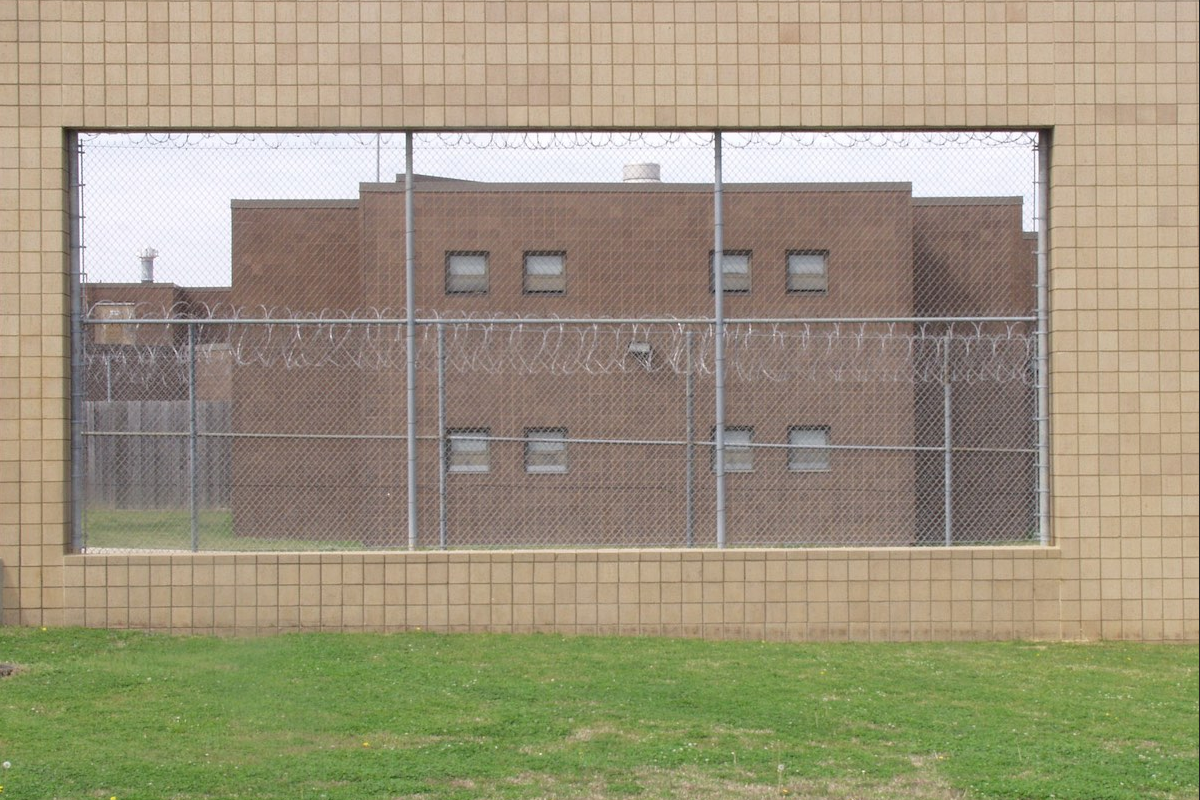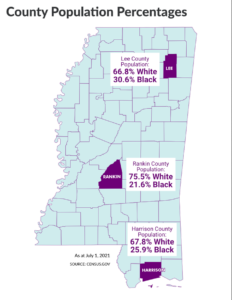Twenty-five inmates at Mississippi’s Central Correctional Institution in Pearl, a town in Rankin County, will soon be able to work, earn at least minimum wage and save half their income if Governor Tate Reeves signs a government bill. Senate passed the Mississippi Legislature last month.
Senate Bill 2437, which Senate President Juan Barnett, D-Heidelberg, sponsored, will give nonviolent offenders pre-arranged work after they complete their prison sentences, the senator told the Mississippi Free Press in an April 13, 2022, phone interview.
“The best we can do is not wait for people to come out and try to find work, but try to rehabilitate them as much as possible while they are incarcerated and help them find work. So when they come out, it’s a huddle that they don’t have to go through trying to find a job,” Barnett said.
Former Columbus, Mississippi councilman Kamal Karriem shared in an online event last October his difficulty finding a job after spending two years incarcerated for embezzlement when he was much younger. “Because of my (criminal history) and the stigma that society has put on me, I can’t even get a fried chicken job,” he said, revealing that he had submitted 43 applications without success after his release from prison.
Criminal history hinders employment
The researchers published their findings in the Science Advances Journal in February 2022 on the impact of criminal history on job search. State University of New York at the Albany School of Criminal Justice, Professor Shawn Bushway and four others, found that unemployed males between the ages of 30 and 38 had substantial involvement in the criminal justice system . Bushway is also a senior policy fellow with the RAND Corporation, a nonprofit think tank.
Our new study estimates that more than half of unemployed men at age 35 have a criminal history of arrest, a stigma that acts as a barrier to their participation in the U.S. workforce. https://t.co/OIyPbIiA5t pic.twitter.com/4ckADDXjUJ
— RAND Corporation (@RANDCorporation) February 19, 2022
In a RAND Corporation press release last month, Bushway explained that while most government programs focus on providing unemployed workers with new skills to get them into the job market, they are not doing enough to overcome the hurdle. criminal history.
“The unemployment system almost never looks at the role that criminal histories play in keeping people out of work,” he said. “Most employers believe that most people with criminal histories will commit offenses again.”
“But that’s not the case. And the risk of recidivism drops significantly as people spend more free time in the community without further conviction. Employers need to take a more nuanced approach to the issue,” Bushway added .
They “want to go out and go to work”
Barnett said that even before the Mississippi Legislature passed SB 2437, which had the full support of all members, companies approached him because they couldn’t find employees and were excited to be able to use prison labor.
“There are employers looking for people to hire,” he said. “And there were people who were incarcerated who want to get out and go to work.”
The RAND Corporation said one reason many companies have understaffing issues is that many employers don’t want to hire people who have been convicted of crimes.
“Employers need to understand that one of the biggest reasons they can’t find the workers they need is (that) too often they exclude those who have had trouble with the criminal justice system,” Shawn said. Bushway, RAND’s senior policy researcher, who led the study. the press release. “Employers need to reconsider their protocols on how to respond when applicants have some type of criminal history.”
In Senate Bill 2437, Senator Barnett said prison officials will take 10% of inmates’ earnings as administrative costs, including transporting inmates to and from work. Twenty-five percent of the inmate’s salary will be used to pay fines and restitution, and the inmate can spend 15% while saving 50%, which they will have access to upon release.

Alicia N. Netterville, deputy director of the American Civil Liberties Union of Mississippi, said those she spoke with who were previously or are currently incarcerated don’t care about the 10% administrative fee.
“They know the program has to be paid for; they know that the transport must be paid for; and they would rather work than sit in the cell all day,” she said. “But they don’t want 80 per cent of their income taken from them – they don’t want to work and come out of prison worse off than when they entered.”
of the law which Mississippi Prison Industries operates under, the organization controls up to 80% of inmate income, which goes towards taxes, room and board, supporting their families, and contributing to the Criminal Injuries Compensation Fund.
While Senate Bill 2437 requires payment of prevailing wages for inmates and workers to earn no less than the federal minimum wage of $7.25, the Mississippi Prison Industries practice does not does not offer such protection. To be eligible for the work release program at the Central Correctional Institution of Mississippi, an inmate must have at least two years remaining on their sentence and not be convicted as a sex offender.


Barnett explained that the plan is for a two-year pilot program with possible expansion to other Mississippi Department of Corrections facilities. “Since I have been President of Corrections, my whole agenda has been to not only correct the behavior that caused the individual to be incarcerated, but also to help people get out so they don’t come back and continue to be a burden on taxpayers,” the senator said. “We want them to be taxpayers, not burdens on taxpayers.”
Barneett said those in the work release program can continue to work after release, and if they want to go elsewhere, they will have that work experience on their resume.
House Bill: no less than minimum wage
SB 2437’s requirement that employers pay the prevailing wage for a job and no less than the federal minimum wage is also one of several provisions of 2021 Bill 747 that Mississippi Rep. Gene Newman, R. -Pearl, sponsored. In 2021, HB 747 empowered the Rankin County Sheriff to start a work release pilot program.
Governor Tate Reeves, a native of Florence in Rankin County, advertised on social media on April 11, 2022, that he had signed HB 586, which Representative Newman also sponsored. The bill extends the program through 2024 and adds Harrison and Lee counties. Over 65% of the population of Rankin, Harrison, and Lee counties is white. None of the state’s more than 20 black-majority counties are part of the program.
“Dignified work has the potential to provide a fresh start, change lives and reduce recidivism rates,” the governor wrote Monday. “I was proud to sign House Bill 586, which expands the existing work release pilot program to Lee and Harrison counties and gives certain nonviolent inmates additional opportunities to work in their communities and better prepare for reintegration. the society.”
“We have seen huge success in this program in Rankin County, and I look forward to seeing the continued impact this program will have on our people and our state! Reeves concluded.
Barnett explained that because such programs provide for the payment of prevailing wages to inmates, it will not alienate employment from other groups in society.
“So it’s not like they’re going to pay them less than they’re paying anybody else; they should pay them like they paid anybody else,” he said.

